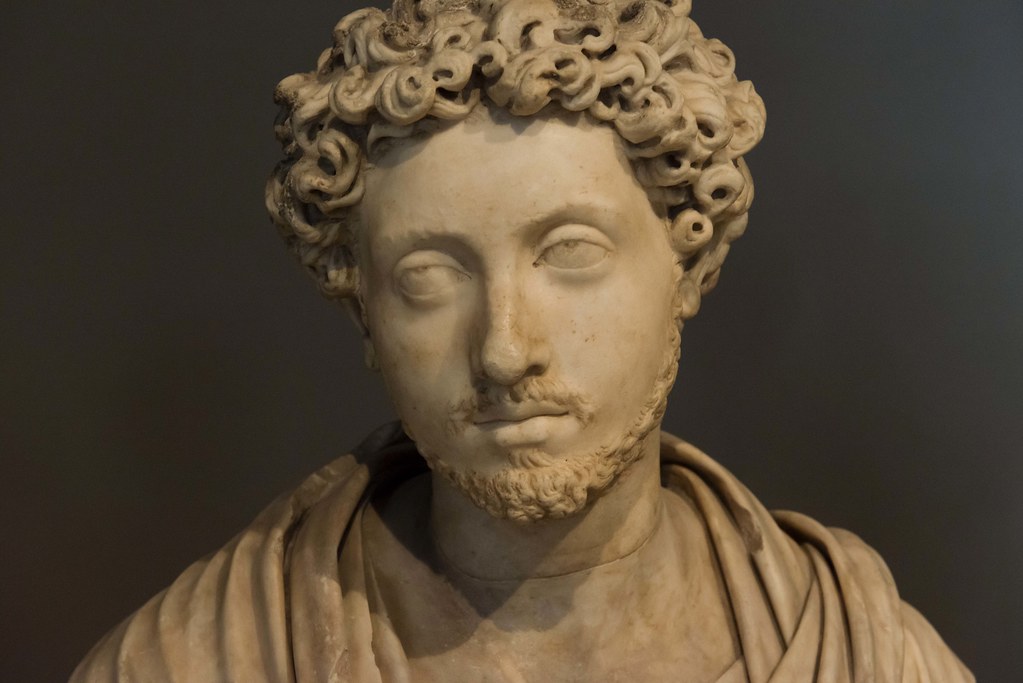In our modern world of constant distractions, endless information overload, and relentless demands on our time and attention, the ancient philosophy of Stoicism offers a surprisingly relevant antidote. At the heart of Stoic thought is the idea of focusing solely on what is within our control and letting go of the rest. And few exemplified this ideal better than Marcus Aurelius, the philosopher king who ruled the Roman Empire nearly 2,000 years ago.

As detailed in the insightful speech summarizing his Meditations, Marcus Aurelius had a profound understanding of where to direct his energy and what deserved his care and attention. He viewed life through the lens of separating the controllable from the uncontrollable – a crucial distinction that allowed him to maintain serenity and virtue amidst the pressures of ruling an empire.
The Future: Imagining the Unreal
One area where Marcus cautioned against wasted effort was excessive worry about the future. He recognized that while we cannot avoid thinking about what may come, agonizing over hypothetical scenarios that may never transpire only breeds unnecessary anxiety in the present moment. As he stated, “Never let the future disturb you. You will meet it, if you have to, with the same reason which today arms you against the present.”
The future, as conceived in our minds, is ultimately imaginary until it unfolds into the present reality. Fretting about worst-case situations that likely will never occur is an unproductive indulgence that robs us of presence and peace in the here and now. Marcus had the wisdom to simply focus on handling the challenges right in front of him, trusting that he could meet whatever future dilemmas arose with the same reason and virtue.
The Past: What’s Done is Done
Just as obsessing about the future is futile, Marcus also urged against becoming entangled in the unchangeable past. “Remember that man lives only in this present, this fleeting instant,” he wrote. The past has dissolved, beyond our ability to alter or undo. While we can certainly learn from previous experiences, replaying painful memories or wishing we could rewrite history is a fruitless endeavor.
The remarkable perspective of Marcus was to view even difficult past events not as misfortunes, but as opportunities that had already been overcome with his virtue intact. “It’s fortunate this has happened and I’ve remained unharmed by it – not shattered by the present or frightened of the future,” he would remind himself. The past didn’t need to be some heavy anchor weighing him down, but rather a source of perseverance.
The Present: The Only Reality
For Marcus Aurelius, the true locus of control existed solely in the present moment. This short span was the “narrow corner” where human life actually took place and wisdom could be cultivated. All else – past and future – were imaginary constructs that could needlessly distract from simply addressing what was in front of him right now.
Even when confronted with seemingly undesirable present circumstances, Marcus would advise maintaining a calm objectivity rather than thrashing against the inevitable unfolding of nature’s course. “Treat what you don’t have as non-existent,” he wrote. “Look at what you have and think how much you’d crave it if you didn’t have it.” This gratitude practice combined with radical acceptance of one’s situation, good or bad, was key to his imperturbable sense of equanimity.
The heart of Stoicism was using reason and virtue to properly respond to events, not vainly trying to control or resist them. “To me the present is a chance for the exercise of rational virtue,” Marcus would remind himself when faced with adversity. Difficulty was simply an opportunity to practice wisdom and strengthen philosophical resolve.
Lasting Wisdom for Modern Life
While Marcus Aurelius’ words were inked nearly two millennia ago during the Roman empire, his teachings remain strikingly relevant for those seeking more presence, peace and perspective amidst our frenetic modern age. By firmly separating the controllable from the uncontrollable, we too can aim our focus at responding to each present moment with reason and virtue rather than wasting precious energy on imagined futures or immutable pasts.
In today’s world of endless distractions, information overload, and anxiety about an uncertain future, the Stoic philosophy of Marcus Aurelius offers a timeless template for how to maintain our center. By shedding the unnecessary burdens we take on by caring too much about external events and circumstances, we paradoxically expand our capacity to thoughtfully navigate whatever life sends our way with clarity and resilience.
The quest of Marcus, and indeed all Stoic thinkers, was to make the most of our limited time by tending to what is within our control – our judgments, actions and reactions in this fleeting present moment. Constantly fast-forwarding to fret about potential future scenarios or rewinding to replay past happenings only deflates our ability to fully experience and make the most of HERE and NOW.
In many ways, Stoicism was the ancient answer to being more mindful, present and unattached in the face of life’s highs and lows. Marcus Aurelius’ wisdom amounts to a powerful call to let go of what we cannot control, and pour our care and effort into properly facing each current reality with reason, virtue and equanimity. While the flourishing of philosophy or the fall of an empire were the present moments that fell to him, we each have our own present realities that warrant full focus undivided by mental wanderings elsewhere. By heeding his timeless guidance, we can strive to stay anchored in what actually is, shedding unnecessary angst over what is not.